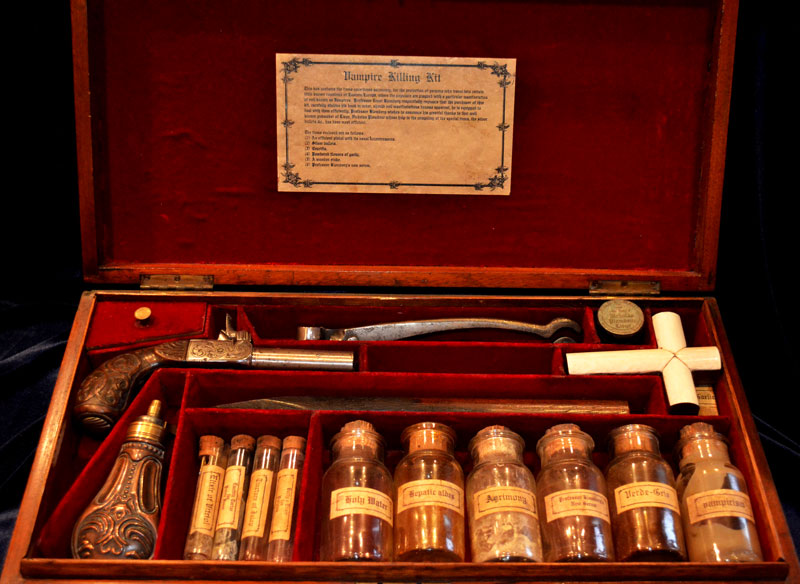I served for one very long year as a jail chaplain. They say you can get used to anything…
…except working in a jail.
After a few months, it didn’t really bother me when the huge metal door clanged shut behind me, locking me in with some of the most desperate people in my county. Soon, I finally started getting comfortable there.
Well again, as comfortable as you can get in a jail.
While the setting was already pretty spartan, I soon discovered my office was being moved…to a closet. No, seriously. They emptied out a big storage closet, installed some gray metal shelving, a desk and VOILA! My new office space was born, with no windows and one door.
It was a very obscure little cubby hole off the beaten path, and it made for some good jokes with the deputies who worked there. It was all pretty funny until one day when I heard a sheepish knock at the door. I opened it to find a rather embarrassed deputy standing there.
“Um, I’m afraid there’s been a fire. We’ve already evacuated everyone from the building and were standing outside when someone asked if we’d gotten the chaplain out. That’s when I came back in to check…”
So hundreds of murders, rapists and thieves had been swiftly shuttled to safety, while the clueless chaplain was left to literally go up in flames in a jail closet with no windows and hundreds of Bibles for kindling! I’ve never understood more clearly my level of importance within an organization.
It’s funny how the years change you. If I’d met some of these kids when I was younger, I’d have thought they were nothing but losers getting what they deserved. Now ministering to them in my early 50s, they started to look an awful lot like sons who’d made some very wrong choices.
I know that once a person has fallen this far, there’s little hope of turning them around. Many see them as lost causes not worth saving. Truth is, even some of their own families have given up.
Some inmates waste away their hours in cellblocks watching TV and talking tough. Others have deeper emotional and psychological problems and are kept in protective gear. But no matter how “bad” they are, most still straighten up when a pastor walks into the room. Language changes and they act a little friendlier. And every now and then, a little vulnerability peaks through their facade.
One prisoner asked to talk to me a week or so before Christmas – a kid I’ll call Andy. He was in his early 20s, and from his tattoos and piercings was trying hard to look tough. But holidays are painful times when you’re separated from loved ones, and Andy was feeling pretty alone in the world that day.
As I talked to him outside his cellblock, the eyes of other inmates darted over to us every now and then. I could tell they were making Andy nervous. You’re really not supposed to show weakness there, and Andy tried to act as tough as possible while he gave me a very tender, personal request.
“Would you call my mom and ask her to come visit me?”
Suddenly this young man with tattoos and piercings seemed awkwardly vulnerable and needy. I quickly jotted down his mom’s phone number and promised I’d get in touch with her as soon as possible. When I got back to my office, I phoned the number Andy had given me and a tired voice answered on the other end of the line…
“Yeah, he’s my son and I love him and all. But he’s got to remember that we have other things going on in our lives besides just him,” she replied. “I’ll do my best to get down there and see him next week.”
How much hope can I give to someone like Andy? When he feels like everyone has given up on him, how do I get him not to give up on himself?
This life is filled with lots of lost causes that most of us have given up on. I hate to admit it, but as a pastor, there are troubled people who take up so much time and often give back little in return. Dealing with them can be draining, discouraging, even depressing. And that’s because getting someone to not give up on themselves when everyone else has is one of the hardest things you’ll ever do.
The good news is that the God of the Bible specializes in lost causes. In fact, He often doesn’t really spring into action until the situation seems terminal. I’ve noticed that He will often stall until it is clear the person cannot save themselves in their own strength. That’s the moment when His Spirit floods in, infusing the situation with His miraculous life-changing power. But that moment is often after everyone else has turned off the lights and gone home.
That was exactly the case with Lazarus in John 11. Jesus knew his friend was sick but waited purposely four days before going to help him. In fact, He actually let His friend die when just a word from Him would have brought healing. By the time Jesus arrived, Lazarus was already in his tomb.
This is one part of God’s nature that seriously drives me crazy – God’s awkward sense of timing. The old preachers used to explain it this way, “He don’t always come when you want Him, but He’s always right on time!” That’s nice but it doesn’t help when you’re the one waiting.
His timing is counter-intuitive to humans, to the point that we think He’s not responding at all. That’s because we are looking for the rescue to come in this life. Often, God will never let us see the answer with these earthly eyes. We think “here and now” – He thinks eternity.
That unreasonable timing is hard for hurting people to embrace. They asked God for help, and they clearly needed it immediately, and yet…nothing. No response. Heaven seems deaf to their prayers. The tumor grows larger, the divorce papers are signed, the rebellious child’s addictions spin out of control. And people look at me and ask, “Why”. And too often, I have few good answers for them.
When Jesus finally arrived in Bethany, he was met by both Mary and Martha who immediately scolded Him that their brother would not have died had He only come sooner. And truth be told, they were correct. And while Jesus doesn’t really offer any apologies, He does something else that’s quite remarkable.
One Biblical translation says Jesus was “deeply moved” by their words, but that does no justice to how it is written in the original language. This phrase actually means to “snort with anger” with a blast of air similar to a racehorse. So Jesus was also angered He had to wait to deliver the answer to their prayers. God Himself was upset at His own timing, and the pain it was causing. What an amazing paradox!
He had to let them go through the agony of seeing their brother die, knowing a greater good was coming. Lazarus was about to be in a very exclusive club as one of the few people ever resurrected from the dead. His life would be a testimony to God’s grave-conquering power from that day forward. He would be an undeniable miracle bringing hope to millions. But before he could be all that, he had to die. And nothing Jesus could say or do at that moment would make it any easier for his family and friends.
I felt just a little of Jesus’ frustration as I tried to encourage my young friend Andy. I knew God still had a great plan for his life if he would only hold on and keep trusting. But when someone’s in pain, it’s hard to make them understand that pain will ultimately work out for the best. You just feel angry you can’t simply change the circumstance.
Angry, just like Jesus was angry.
Andy had asked to see me about a month later. He seemed more desperate about getting out, and talked about a chance to go to a halfway house in just a few months. He said he wasn’t cut out for life in prison, and I said I understood but that he would have to be strong.
That’s when he started crying. Behind bars, tears are a sign of weakness, and could get you victimized brutally. Quickly, I traded places with him so his back would be to the other inmates and they wouldn’t see the tears streaming down his face.
About a week later, I discover the reason for those tears. Andy was being sexually abused by another inmate.
As I sat in my little closet with my jaw hanging open, I thought of Jesus’ tears over the grief of Lazarus’ friends. The shortest verse in the Bible recorded the vulnerability of God Himself to our sufferings – “Jesus wept”.
I don’t pretend to understand why some things happen in this life, or how the sovereign will of God works. But there’s one thing I can tell you for sure about it – God is not OK with your suffering even though He is the one who allows it. Jesus’ tears are an eternal testimony to this fact. While Andy was in that room crying, I have no doubt Jesus was there with us, holding Andy and weeping with him.
God allowed Lazarus to go through death so an even greater miracle than healing could occur – resurrection. In our lives too, He will sometimes allow things to go beyond any reasonable ability to redeem the situation. And yet He asks us to wait, to trust, and to cooperate with Him even when the circumstance seems unbearable. He unbelievably brash things like “take up your cross” and carry it willingly to the place of your own execution!
Honestly, I get really frustrated trying to counsel lost causes. I want to fix the problem, but often God doesn’t seem to let me. And getting involved in other people’s tragedy is exhausting. Like the first responders who had put our the jail fire and spared my office closet, we’re asked to run toward the very painful circumstances others are running from.
I got a call about a month after that last meeting. There’d been a suicide in the cellblock. A young man had hung himself, taking his own life. I got to the cellblock late that evening to find the detectives finishing up their work, the paramedics wrapping up and readying to exit the building. And then I found out the identity of the victim.
Andy had given up waiting for his family, for his release, and for God. He had applied a permanent solution to his temporary problem. Andy took his own life, hanging himself with a bed-sheet from an air conditioning vent in his cell.
After counseling with the inmates who knew Andy, I wandered back to my office in a daze. I pulled up Andy’s records on my computer, looking at his information one last time. As I checked it, I noticed something curious that caught my eye. Where Andy’s cellblock number would have been listed, the word “released” was now visible. That’s what they put when an inmate has been let out of jail and is free to go.
At that moment, I thought to myself, “That’s right. He’s been released now. He’s free.”
No, this is not the way God planned it. God had a wonderful plan that would have used the very trials Andy endured and transformed them into weapons of righteousness in his hands. Some of the world’s worst victims have become God’s agents of healing to others. That’s why giving up is so tragic – we deprive others of the healing our lives were intended to deliver.
I’m sad my young friend missed that opportunity. I believe the power of God is so great that even when we give up on ourselves, God still has never given up on us. And one day, as Lazarus was called forth, I believe Andy will be called out of his grave and into a new a glorious life.
So why should we stick with the lost causes around us? Why should we bother with the no-win scenarios who walk into our lives every day?
I guess it comes down to what you’ve truly put your faith in. If this world is all there is, then you’ll prioritize the temporal things everyone else does – wealth, fame, pleasure, etc.
However, if you’re one of those few who truly believe that this world is just the entrance exam for the next, you’ll wind up putting all your chips on the things everyone else ignore. You’ll focus on the weak and defenseless, the little ones with no power to grant you, and not even a strong enough voice to say thank you.
One person who’s done that is Cori Salchert, a former parental bereavement nurse with eight biological kids of her own. Her job meant she cared for infants who are terminally ill, with zero chance of survival. That in itself sounds like enough of a sacrificial job.
But Cori noticed that many of the families of these babies would simply walk away after receiving the terminal diagnosis. After their joyful expectations at birth, the mothers simply couldn’t take the thought of watching their baby die. So they did the unthinkable – they abandoned them at the hospital.
I can only imagine the mixture of emotions Cori felt as she tried to do her job. Surely there was anger at these parents who could leave their own children to die alone, along with the grief of watching the babies struggle on with no one holding them but her.
Emmalynn was one such baby. Since birth she’d been in a vegetative state, unable to see or hear. The one thing she could do was feel, but most of those feeling were the physical pain brought on by her condition. At the hospital, she would have been left in a blanket on her feeding pump and put aside to die. But in that hopeless situation, Cori saw an opportunity to love irrationally.
That’s when Cori made a sacrifice some might think pointless. In 2012, Cori adopted Emmalynn into her own family.
Now this little girl was no longer alone, and the youngest of 9 siblings. Each of the Salchert children would take turns holding her throughout the day. They would kiss her repeatedly, and the family took her everywhere they went.
After about 50 days of life, Cori could tell Emmalynn was fading. They gathered the family together, who each took one last turn holding and kissing her.
Finally, Cori snuggled with Emmalynn, holding her close while singing “Jesus Loves Me” gently over her. After a few minutes, Cori realized Emmalynn hadn’t breathed for several minutes. She was gone now, but she was never ever alone.
I doubt that anyone at that county jail remembers Andy today. His short life and sudden death was just one more sad event in a series of them for the deputies who work there. Likewise, I wonder if any of the nurses at that hospital remember little Emmalynn. I know that after a while, even the most tender-hearted nurses working there have taught themselves to forget and move on.
But I believe there is a God who knows both Andy and Emmalynn by name. He saw their pain and felt it as any father would for his own child. He takes their pain personally, and so when any of us show love to even the most hopeless case, He notices and smiles on us.
I know that our good works don’t get us into heaven, but if I were Cori Salchert, I wouldn’t be too worried about taking my first steps into the next life. She has made an investment, through Emmalynn and all the other children she has gone on to adopt and love in their final days of life.
So it’s not too hard for me to imagine the scene when she walks into heaven’s throne room. One by one, I see little children walking – no, running up to meet her, the last loving touch they felt on earth. I see their little hands, now healthy and whole, reaching up to hers.
As they gather around Cori, they walk her triumphantly into the throne room of God. And this God, this Father of the fatherless who promised to bless those who help “the least of these”, will look up at her and smile widely:
“Well done, my good and faithful servant”.
Blessed are those who love the lost causes. Because in the next life, the hopeless ones to whom you showed love on this earth may be the very ones who greet and usher you into heaven’s door…




